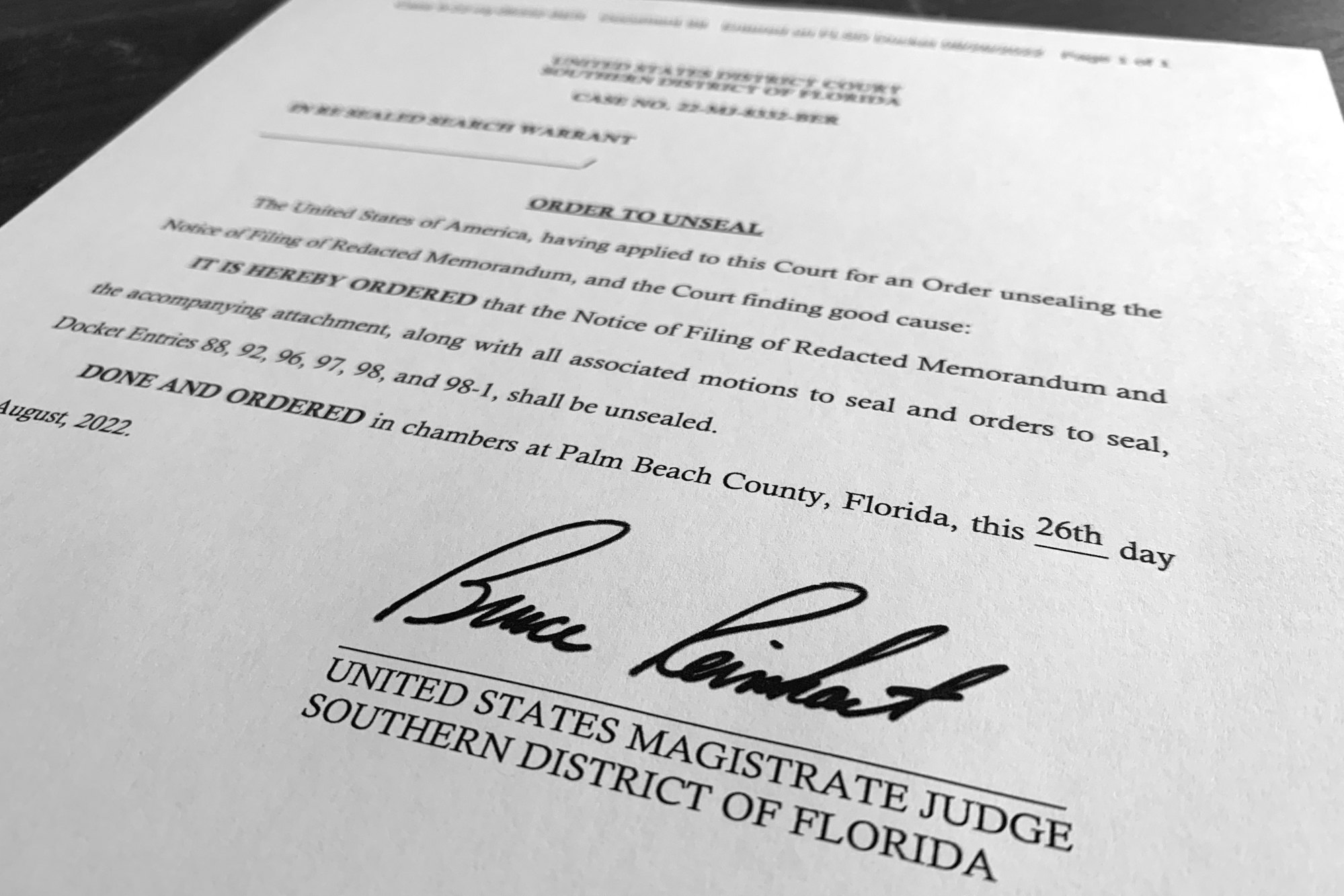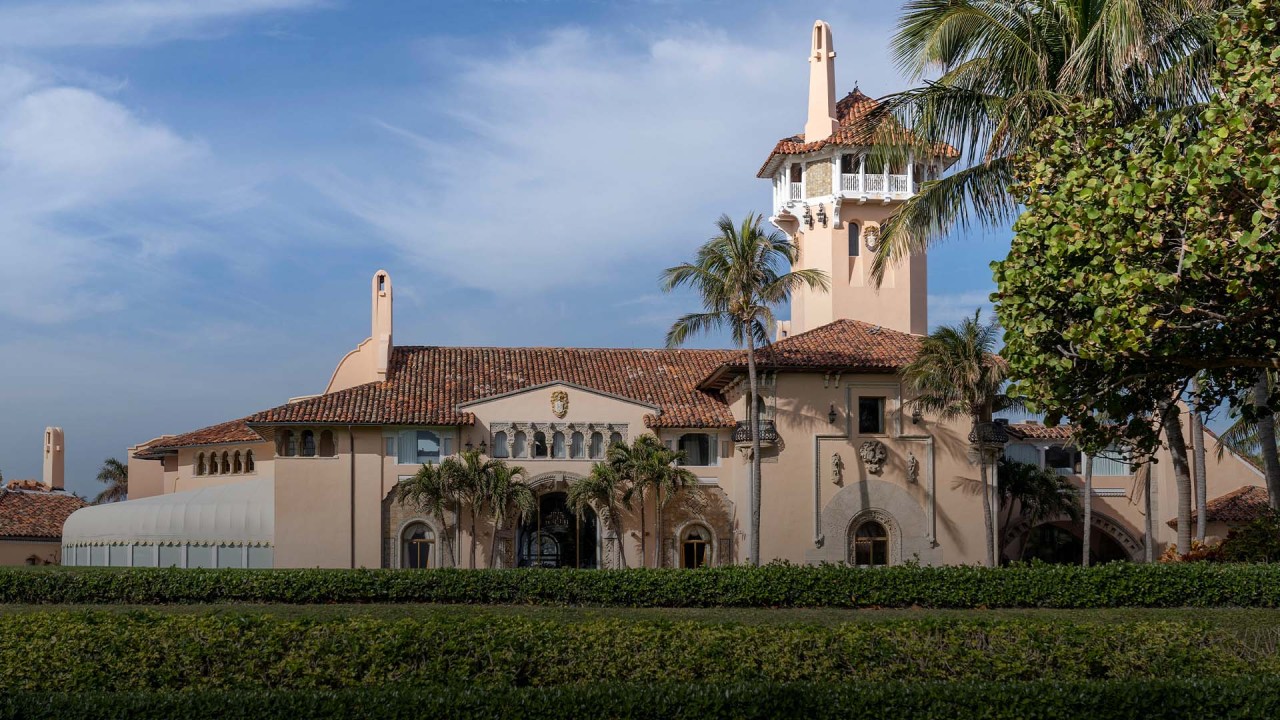
US Justice Dept releases redacted search affidavit for Donald Trump’s Florida home, Mar-a-Lago
- The partially blacked-out document explains the justification for an FBI search of former US President Donald Trump’s Florida estate earlier this month
- The document is likely to offer at least some new details about an ongoing criminal investigation that has brought fresh legal peril for Trump
The US Justice Department on Friday released a partially blacked-out document explaining the justification for an FBI search of former President Donald Trump’s Florida estate earlier this month, when agents removed top secret government records and other classified documents.
The document, even in its redacted form, is likely to offer at least some new details about an ongoing criminal investigation that has brought fresh legal peril for Trump just as he lays the groundwork for another presidential run.
Though Justice Department officials were expected to have removed sensitive details about witnesses, and the scope and direction of the investigation, the affidavit may offer the fullest description yet about the events leading up to the August 8 search of Mar-a-Lago.

The document being released is the redacted form of an affidavit, or sworn statement, that the Federal Bureau of Investigation (FBI) submitted to a judge so it could obtain a warrant to search Trump’s property.
Affidavits typically contain vital information about an investigation, with agents spelling out to a judge the justification for why they want to search a particular property and why they believe they are likely to find evidence of a potential crime there. But affidavits routinely remain sealed during pending investigations, making the judge’s decision to reveal portions of it all the more striking.
In an acknowledgement of the extraordinary public interest in the investigation, US Magistrate Judge Bruce Reinhart on Thursday ordered the department by Friday to make public a redacted version of the affidavit.
The directive came hours after federal law enforcement officials submitted under seal the portions of the affidavit that they want to keep secret as their investigation moves forward.
Trump seeks to block FBI from reviewing items seized at Mar-a-Lago
The redactions proposed by the Justice Department are likely to be extensive given the sensitivity of the investigation, lessening the likelihood that the document will offer a comprehensive look at the basis for the unprecedented search or significant insights about the direction of the investigation.
Yet even a redacted affidavit can contain at least some fresh revelations about the investigation, and is likely to help explain why federal agents who had tried for months to recover sensitive government records from Mar-a-Lago ultimately felt forced to obtain a search warrant.
Documents already made public show the FBI retrieved from the property 11 sets of classified documents, including information marked at the top secret level.
They also show that federal agents are investigating potential violations of three different federal laws, including one that governs gathering, transmitting or losing defence information under the Espionage Act.
The other statutes address the concealment, mutilation or removal of records and the destruction, alteration or falsification of records in federal investigations.
It’s possible that the affidavit, particularly in its unredacted form, could shed light on key unanswered questions, including why sensitive presidential documents – classified documents among them – were transported to Mar-a-Lago after Trump left the White House and why Trump and his representatives did not supply the entire tranche of material to the National Archives and Records Administration despite repeated entreaties.
It could also offer additional details on the back-and-forth between Trump and the FBI, including a subpoena for documents that was issued last spring, as well as a June visit by FBI and Justice Department officials to assess how the materials were being stored.
The Justice Department had earlier contested arguments by media organisations to make any portion of the affidavit public, saying the disclosure could contain private information about witnesses and about investigative tactics.
But Reinhart, acknowledging the extraordinary public interest in the investigation, said last week that he was disinclined to keep the entire document sealed and told federal officials to submit to him in private the redactions it wanted to make.

In his order on Thursday, Reinhart said the department had made compelling arguments to leave sealed broad swathes of the document that, if disclosed, would reveal grand jury information; the identities of witnesses and “uncharged parties”; and details about the investigation’s “strategy, direction, scope, sources and methods”.
But he also said he was satisfied “that the government has met its burden of showing that its proposed redactions are narrowly tailored to serve the government’s legitimate interest in the integrity of the ongoing investigation and are the least onerous alternative to sealing the entire affidavit”.


